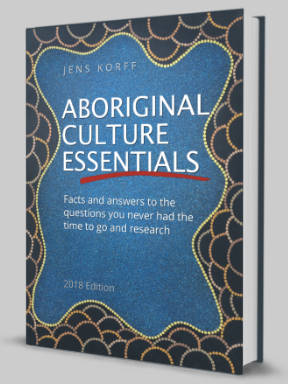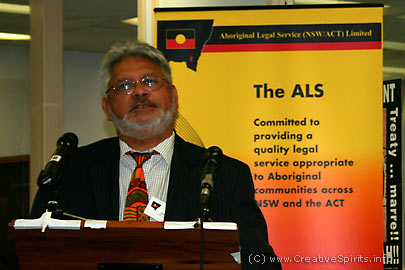Law & justice
Australia's first Aboriginal Legal Service
Founded in 1970, Australia's first Aboriginal Legal Service offers free legal service across a variety of areas.

Wishing you knew more about Aboriginal culture? Search no more.
Get key foundational knowledge about Aboriginal culture in a fun and engaging way.
This is no ordinary resource: It includes a fictional story, quizzes, crosswords and even a treasure hunt.
Stop feeling bad about not knowing. Make it fun to know better.
Founding the Aboriginal Legal Service (ALS) in NSW/ACT
Aboriginal activists and lawyers established the Aboriginal Legal Service (ALS) in 1970 in the Sydney suburb of Redfern.
It was staffed by volunteers who provided free legal advice and representation to the Aboriginal people of inner Sydney.
In 1971, the service received its first government grant for the salaries of a full-time solicitor, a field officer and a secretary. In 2010, 18 lawyers were working for the ALS.
The service was Australia's first free legal service, setting the model for mainstream community legal aid. There are now legal services all across Australia. [1]
What does the Aboriginal Legal Service do?
The ALS assists Aboriginal people in many ways in and outside the courtroom [2]:
- Custody Notification Service. By law, the police must notify the ALS when an Aboriginal person is arrested. The lawyer speaks with the person and gives advice. Read more about the Custody Notification Service.
- Prisoner Support Unit. The Prisoner Support Unit aims to prevent Aboriginal deaths in custody by visiting and checking in with prisoners. It assists in their rehabilitation, provides crisis support, helps prisoners stay in contact with their families and when they are released in unfamiliar towns.
- Community legal education. The ALS develops, produces and delivers community legal education activities.
- Aboriginal Field Officers. Field Officers assist ALS lawyers in talking to Aboriginal clients and families, arrange for referrals, and provide law and social justice education in the community.
- Family Violence Officers. The ALS works with people who have become victims of family violence. Family Violence Officers can also arrange referrals.
- Law reform. The ALS advocates for the protection of the rights of Aboriginal people, in particular coronial reform and other advances in the criminal justice system.

Melbourne's William Cooper Justice Centre has been named after a Yorta Yorta man from the Cummeragunja Mission. Mr Cooper founded the Australian Aborigines League, the first political organisation for Aboriginal people. He also helped establish the Day Of Mourning, and in 1938 led a protest of Aboriginal people who walked to the German consulate in Melbourne to denounce the treatment of European Jews by the Nazis. [3]
Celebrating 40 years of service
In June 2013 the ALS celebrated 40 years of supplying legal services to the Aboriginal community.
To mark the occasion, it created the Story Project to tell the story of the first Aboriginal Legal Service in Australia, following its path from its beginning to where it is today.
It is not one story, but many--told in the voices of Aboriginal and non-Aboriginal people who worked together to achieve greater justice for Aboriginal people.
To watch all stories, go the Aboriginal Legal Service NSW/ACT YouTube channel.
To obtain a copy of all the Story Project interviews in DVD format, please contact media@alsnswact.org.au.